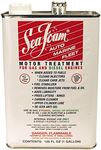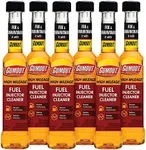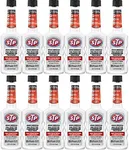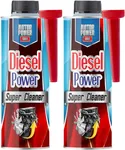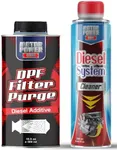Buying Guide for the Best Auto Fuel Additives
Auto fuel additives are products designed to improve the performance and efficiency of your vehicle's engine. They can help clean the fuel system, improve fuel economy, and reduce emissions. When choosing the right fuel additive, it's important to understand the different types and their specific benefits. This guide will help you navigate the key specifications and choose the best product for your needs.Type of AdditiveThere are several types of fuel additives, including fuel injector cleaners, octane boosters, fuel stabilizers, and complete fuel system cleaners. Each type serves a different purpose. Fuel injector cleaners help remove deposits from the fuel injectors, improving engine performance. Octane boosters increase the octane level of the fuel, which can enhance engine power and efficiency. Fuel stabilizers prevent fuel from breaking down over time, which is especially useful for vehicles that are not used frequently. Complete fuel system cleaners address multiple issues by cleaning the entire fuel system. Choose the type of additive based on your specific needs, such as improving performance, maintaining fuel quality, or cleaning the fuel system.
CompatibilityNot all fuel additives are compatible with every type of engine or fuel. Some additives are designed specifically for gasoline engines, while others are for diesel engines. Additionally, certain additives may be formulated for use with specific fuel types, such as ethanol-blended fuels. It's important to check the product label to ensure the additive is compatible with your vehicle's engine and the type of fuel you use. Using an incompatible additive can cause damage to your engine or fuel system.
Concentration and DosageFuel additives come in different concentrations and require specific dosages to be effective. The concentration refers to the strength of the additive, while the dosage indicates how much additive should be added to a certain amount of fuel. Higher concentration additives may require smaller dosages, while lower concentration additives may need larger dosages. It's important to follow the manufacturer's instructions for the correct dosage to avoid over-treating or under-treating your fuel. Over-treating can lead to engine damage, while under-treating may not provide the desired benefits.
Frequency of UseThe frequency with which you need to use a fuel additive can vary depending on the product and your driving habits. Some additives are designed for regular use, such as with every tank of fuel, while others are intended for periodic use, such as every few thousand miles. Regular use additives can help maintain engine performance and fuel efficiency over time, while periodic use additives are typically more intensive treatments for specific issues. Consider your driving habits and the condition of your vehicle when determining how often to use a fuel additive.
Brand ReputationThe reputation of the brand can be an important factor when choosing a fuel additive. Established brands with a history of producing high-quality products are more likely to offer effective and reliable additives. Researching customer reviews and expert opinions can provide insight into the performance and reliability of different brands. Choosing a reputable brand can give you confidence that the additive will deliver the promised benefits and not cause harm to your vehicle.



